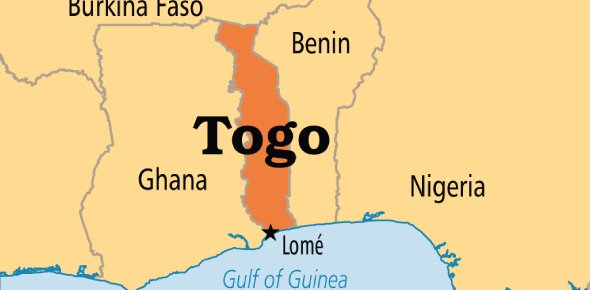
Togo Under General Eyadema (1967-2005)
The first military coup in black Africa occurred in 1963 when Sylvanus Olympio was toppled and replaced by Grunitky. He was also toppled through a coup in 1967. The second coup ushered in General Gnassingbe Eyadema was the head of the army from the Kabiye tribe. He managed to rule Togo for a long time, well into the 1990s. He made his party, Rally of the Togolese People (RPT) the only legal party in the country. The trade unions were replaced by the National Confederation of Togolese Workers (CNTT).
After a new constitution in 1979, Eyadema was able to run unopposed for President and won. He tried some reforms including liberalizing the Togolese political system by allowing contested elections in March 1985. However, opposition to his regime increased and a few exiles living in Ghana even tried to invade the country. In 1986, he won another 7-year term. Violent student protests in March 1991 made Eyadema agree to legalize opposition parties, he granted amnesty to protestors who had been arrested and allowed the convening of a conference that would tackle the issue of a multi-party democracy.
Out of the conference, ten opposition parties emerged and Kokou Koffigoh became Prime Minister. Not long after, the army attacked the Prime Ministers office and forced him to dissolve the transitional government. They managed to change the constitution and raise the minimum age which made Koffigoh ineligible to run. The new constitution was also engineered to ensure that the Kabiye tribe would stay in power.
Eyadema’s army attacked opposition leaders including Tavo Amorin, leader of the Pan-African Socialist Party. He was gunned down in broad daylight in the country’s capital. These events led to the postponement of the election. Voters finally approved a new constitution in September 1992 even as Eyadema’s soldiers took hostage members of the High Council of the Republic (HCR). When elections were held in 1993, Eyadema won unopposed because opposition parties refused to participate. Eyadema survived an attempted coup in January 1994 and continued to manipulate the political system. During the 1994 election, when Eyadema realized that he was about to lose, he challenged the election results in three constituencies and the Supreme Court ordered by- elections in these districts.
General Eyadema remained President until his death on 5 February 2005, Eyadéma on board a plane in Tunisia. At the time of his death, he was the longest-serving head of state in Africa.



